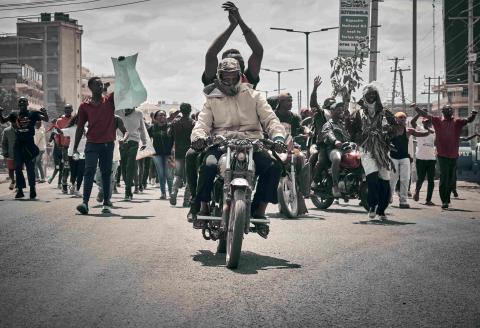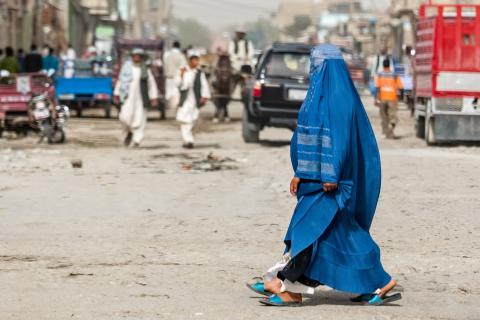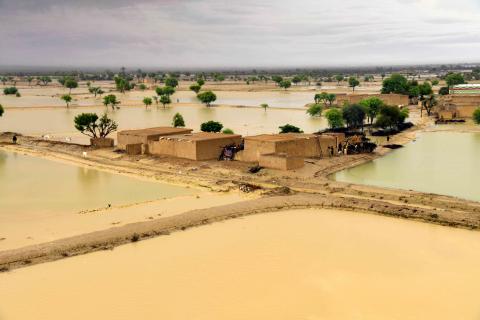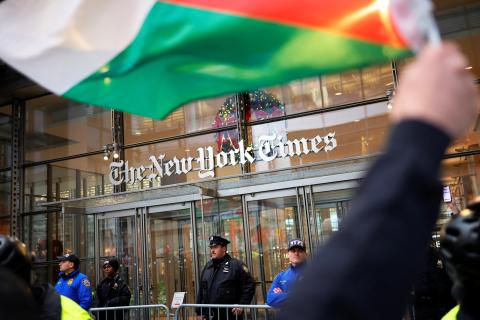Al Jazeera Journalism Review
From Journalism to Agriculture or “Forced Unemployment” for Sudanese Journalists
How did the war in Sudan push dozens of journalists to change their professions in search of a decent life? In this article, colleague Muhammad Shaarawi recounts the journey of journalists who were forced by war conditions to work in agriculture, selling vegetables, and other professions.

October 7: The Battle for Narratives and the Forgotten Roots of Palestine
What is the difference between October 6th and October 7th? How did the media distort the historical context and mislead the public? Why did some Arab media strip the genocidal war from its roots? Is there an agenda behind highlighting the Israel-Hamas duality in news coverage?
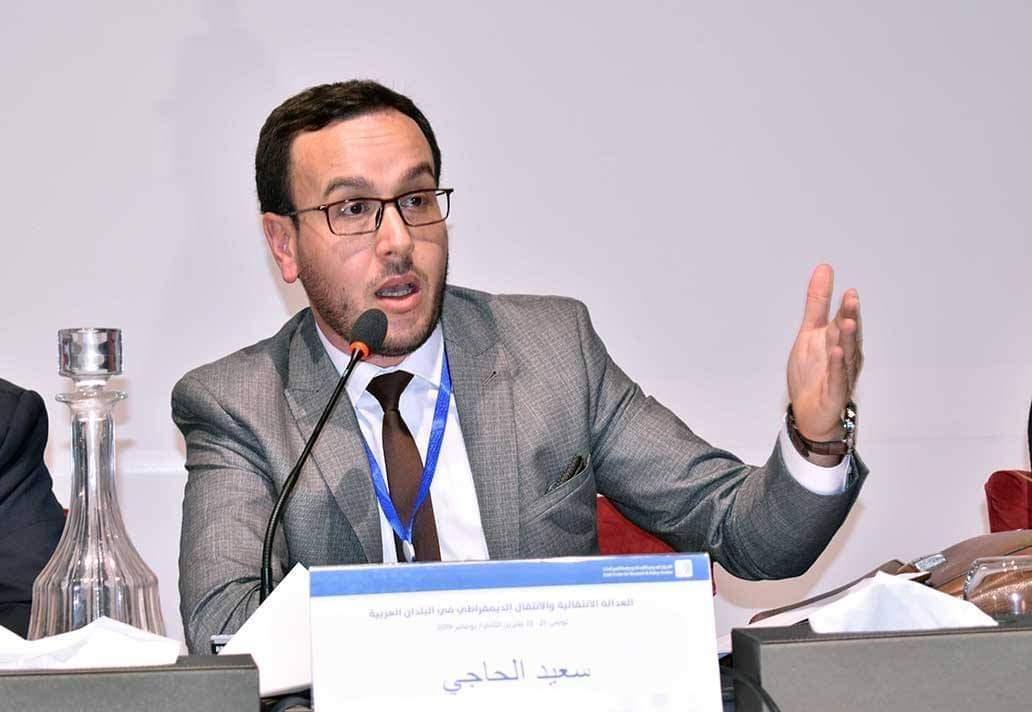
Challenges of Unequal Data Flow on Southern Narratives
The digital revolution has widened the gap between the Global South and the North. Beyond theories that attribute this disparity to the North's technological dominance, the article explores how national and local policies in the South shape and influence its narratives.

Sound of Change: How Podcasting is Changing Journalism in India
India’s podcasting scene is on the rise, driven by affordable internet and changing content habits, yet still faces challenges like limited monetisation and urban-focused reach. Despite these hurdles, independent creators are using the medium to amplify grassroots narratives, shaping a more inclusive media landscape.

Decolonise How? Humanitarian Journalism is No Ordinary Journalism
Unlike most journalism, which involves explaining societies to themselves, war reporting and foreign correspondence explain the suffering of exoticised communities to audiences back home, often within a context of profound ignorance about these othered places. Humanitarian journalism seeks to counter this with empathetic storytelling that amplifies local voices and prioritises ethical representation.

Mastering Journalistic Storytelling: The Power of Media Practices
Narration in journalism thrives when it's grounded in fieldwork and direct engagement with the story. Its primary goal is to evoke impact and empathy, centering on the human experience. However, the Arab press has often shifted this focus, favoring office-based reporting over firsthand accounts, resulting in narratives that lack genuine substance.

I Resigned from CNN Over its Pro-Israel Bias
Developing as a young journalist without jeopardizing your morals has become incredibly difficult.

Digital Colonialism: The Global South Facing Closed Screens
After the independence of the Maghreb countries, the old resistance fighters used to say that "colonialism left through the door only to return through the window," and now it is returning in new forms of dominance through the window of digital colonialism. This control is evident in the acquisition of major technological and media companies, while the South is still looking for an alternative.
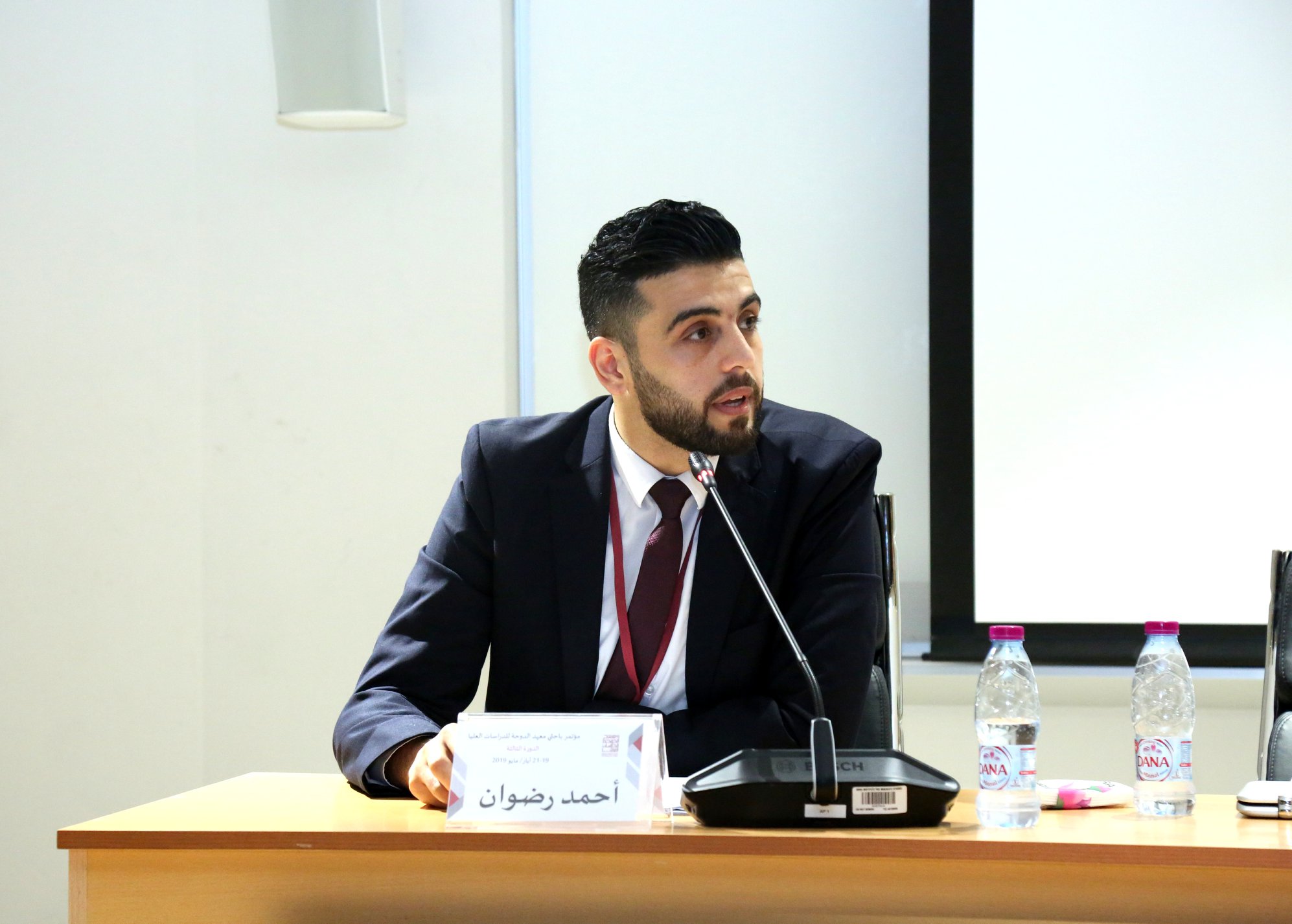
Fake Accounts with Arab Faces: "A Well-Organized Cyber Army"
Israel has launched a digital war against Palestinians by flooding social media with fake accounts designed to spread disinformation, distort narratives, and demonize Palestinian resistance. These accounts, often impersonating Arabs and mimicking regional dialects, aim to create fake public opinion, promote division among Arab nations, and advance the Israeli agenda in the digital space.

Citizen Journalism in Gaza: "The Last Witness"
With a phone camera, Abboud Battah appears every day from northern Gaza, documenting the crimes of the occupation in a language that is not devoid of spontaneity that led to his being arrested. When the Israeli occupation closed Gaza to the international press, killed journalists, and targeted their headquarters, the voice of the citizen journalist remained a witness to the killing and genocidal war.
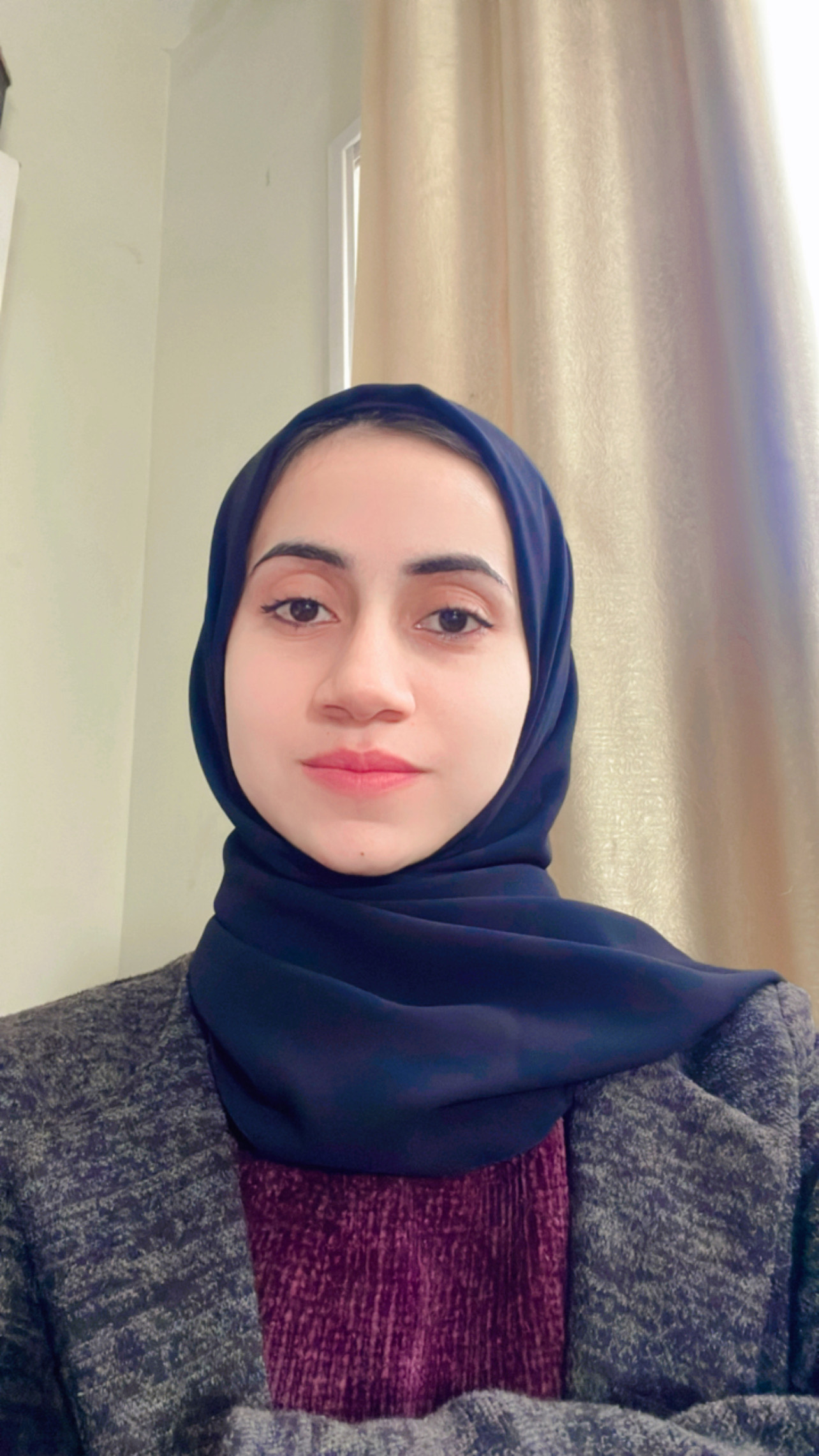
A Survivor Interview should not be Considered a Scoop
Do ethical and professional standards allow for interviewing survivors while they are in a state of trauma? How should a journalist approach victims, away from sensationalism and the pursuit of exclusivity at the expense of their dignity and right to remain silent?

Censorship, Militarisation, and Dismantlement: How Public Media Became a Political Battlefield in Latin America
Public media in Latin America, such as Brazil's EBC and Argentina's Télam, are being undermined through militarisation and dismantlement, threatening their role as public institutions. These actions jeopardise media independence and weaken their ability to serve the public interest, posing a serious risk to democracy.
Independent Syrian Journalism: From Revolution to Assad's Fall
Independent Syrian journalism played a pivotal role in exposing regime corruption and documenting war crimes during the 13-year revolution, despite immense risks to journalists, including imprisonment, assassination, and exile. Operating from abroad, these journalists pioneered investigative and open-source reporting, preserving evidence, and shaping narratives that challenged the Assad regime's propaganda.

Bolivia’s Mines and Radio: A Voice of the Global South Against Hegemony
Miners' radio stations in the heart of Bolivia's mining communities, played a crucial role in shaping communication within mining communities, contributing to social and political movements. These stations intersected with anarchist theatre, educational initiatives, and alternative media, addressing labour rights, minority groups, and imperialism.

Journalists and the Gen–Z protest in Kenya
Caught between enraged protesters and aggressive police officers, journalists risked their lives to keep the world informed about the Gen–Z protests in Kenya. However, these demonstrations also exposed deeper issues regarding press freedom, highlighting a troubling aspect of Ruto’s government.

Behind the Burka: Journalism and Survival Under Taliban Rule
An account of a female Afghan journalist who persisted in her work in spite of the Taliban's comeback, using her writing to expose the harsh realities of oppression and promote women's rights. In defiance of the Taliban government's prohibitions on female education, she oversaw underground schools for girls and reported under a pseudonym while constantly fearing for her safety.
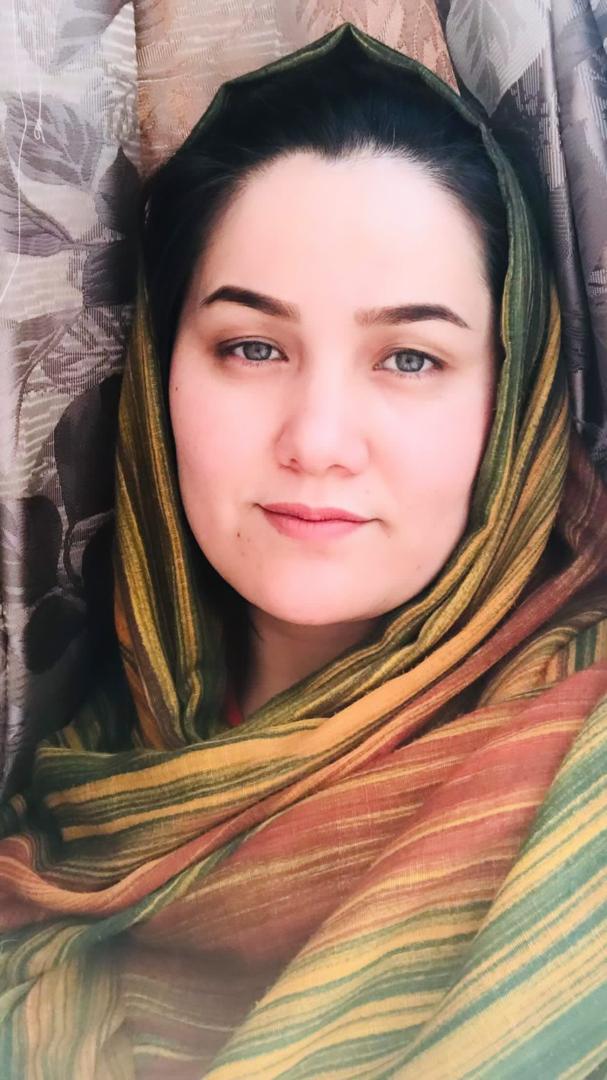
Is Pakistan’s Media Ignoring Climate Change?
Pakistan's media, despite its wide reach, largely neglects climate change in favor of political and economic issues, leaving the public under-informed about the causes and consequences of climate-related disasters. As a result, many Pakistanis remain unaware of the growing threats posed by climate change, which has devastating effects on the country's economy and population, as seen in the catastrophic floods of 2022.

Fact or Fiction? Quantifying the 'Truth' in True-Crime Podcasts
Over the centuries, true crime narratives have migrated across mediums—from tabloids and books to documentaries, films, and, most recently, podcasts. Despite these evolutions, one constant endures: the storytellers’ drive to detail the darkest corners of human behaviour and the insatiable curiosity of their audiences.

Why Are Journalists Being Silenced in Kashmir?
Since the revocation of Article 370 in 2019, press freedom in Indian-administered Kashmir has sharply declined, with local journalists facing harassment, surveillance, and charges under anti-terror laws, while foreign correspondents are denied access or deported for critical reporting. These measures, aimed at controlling the region’s narrative and projecting normalcy, have drawn widespread criticism from international watchdogs, who warn of increasing suppression of both domestic and foreign media.

Gender Inequity in Sports Reporting: Female Journalists Demand Equality
Gender inequality persists in sports journalism, with female reporters significantly under-represented, as shown by studies revealing that only 5.1% of sports articles are written by women. Advocates call for equal representation, more inclusive hiring practices, and a broader focus on women's sports to challenge stereotypes, improve coverage, and give women a stronger voice in shaping sports narratives.

How Does Misinformation Undermine Public Trust in Journalism?
Reports reveal a growing loss of trust in the media, driven by the extent of misinformation that undermines professional journalism's ability to influence public discourse. The platforms of misinformation, now supported by states and private entities during conflicts and wars, threaten to strip the profession of its core roles of accountability and oversight.

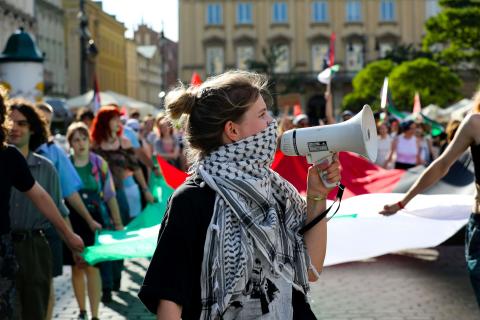

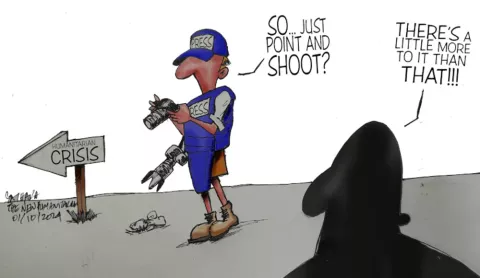
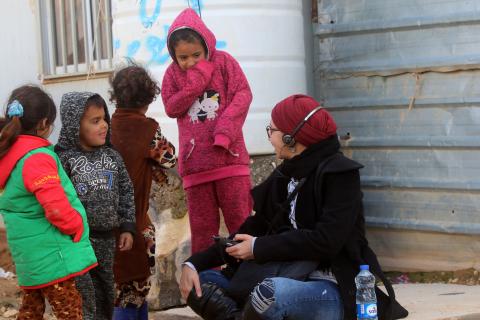
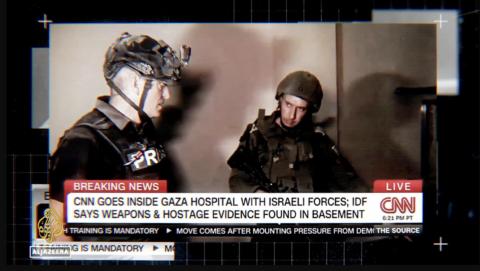

![Workers at Télam mobilise as the Argentine government plans to shut down the state news agency [SomosTelam.com.ar].](/sites/default/files/styles/large/public/ajr/2024/Picture1_0.png?itok=kQzCHMbL)

